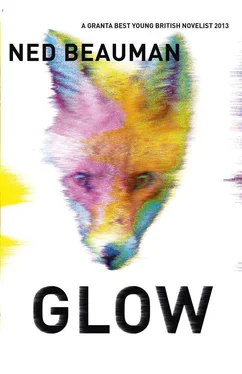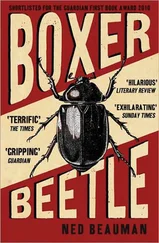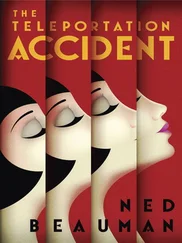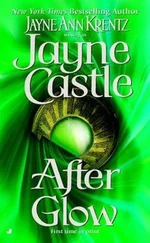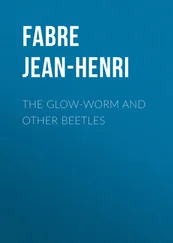Back in the mid-eighties, when Lacebark prospectors first arrived in Gandayaw, they probably assumed that the local tribes had been there since the Stone Age. But even six or seven generations earlier, Zaya and Cherish’s ancestors had been down in the valleys, tending rice paddies and trading with Mandalay. In Burma, though, when a king asked for too much rice in tribute or too many sons for his army, he would often have to watch as his subjects flew away like skittish doves, into the forest or up to the hills, far beyond his control. In the process, they might abandon their written language, their genealogy, their folk stories, because all those things made you dangerously intelligible to the valley powers, and even to be included in a statistical table was a submission too far. That willingness to leave everything behind in the mud was why no government had ever had real control over the entire nation and why no government ever would.
Still, the people of Gandayaw and the neighbouring villages might have returned to the valleys in the long run. They’d moved back and forth several times before. But only in their own good time. And when Lacebark came to Gandayaw, the locals should have made the same sort of escape they used to make from all the old kings and conquerors. They should have gone far enough away that they wouldn’t even have been tempted to sell their souls for a few dollars in the Concession. If Zaya had been old enough for leadership by then, perhaps that’s what would have happened. But they were all just too awed by what the Americans brought.
‘You know the best thing that Burma ever got from America, really?’ Zaya said. ‘Cassava. You plant it in the ground. You leave it there as long as you need to. Then you come back and eat it when you get a chance. It won’t be noticed. It can’t be burned. It’s not worth the effort of confiscating. It doesn’t need tending. It won’t rot or dry out. It will grow where nothing else will grow. For a free people, it’s the best food in the world. But we’re not a free people any more. We eat Lacebark rations.’ He scratched at the rash on his hip.
‘If you have cassava, there’s only one real problem with going up into the hills when the king starts asking too much of you. How do you get anything back down to market? If it’s timber or bamboo or cattle or potatoes, you can’t lug that all the way down into the valleys. You can only really stray from the towns if you have something to sell that you can carry for a day on your back. So that’s what the tribes in the hills started trading. Elephant tusks, peacock feathers, sappanwood, rubies. . For a while, the best was pepper. A few hundred years ago, peppercorns were more valuable than anything in the world except silver and gold, and you could pluck the drupes right off the vine. If you have pepper to trade and cassava to eat, you are truly free.’
‘Is that an old proverb?’
‘No, it’s an anachronism. Back when pepper was still expensive, there was no cassava in Asia yet. But you understand what I mean.’
‘I guess.’
‘Are you hungry?’
‘Yes,’ said Cherish. ‘What’s for dinner? My guess is. . cassava? Right? Cassava with lots of pepper?’
Zaya smiled. ‘Maybe some of that. But it’s your first night here. We should celebrate. Let’s go out and get something tasty while it’s still light.’
‘Go out and get something?’
‘Yeah. It’s not raining so hard now.’
Zaya went inside to tell Kham where they were going. When he came back out he brought with him a machete, a catapult, and a nylon bag full of rusty half-inch nuts. He handed the catapult to Cherish and said, ‘Do you remember how to use one of these?’
‘I think so.’
‘You used to be really good at it.’
While Cherish practised shooting into the trees, Zaya searched for truth behind the concentration in her face. At this stage he could still get one of the others to drive her back to Mae Sot, and even if really she were working for Lacebark she couldn’t do any damage. They were moving on from the hotel soon and he hadn’t told her anything important yet. But a few sentences could change that. If he took her past a certain boundary and only realised afterwards that she wasn’t on his side, he would have to make sure she disappeared from the world for at least as long as their plans in London were still a secret. It wasn’t that he wanted to believe she could betray him. The thought made his stomach twist. But in 2008 it had taken him weeks longer than it should have to realise that Chao had switched sides, and he’d nearly died in a raid as a result. He wasn’t going to make that mistake again. Also, Cherish was an American now, and he knew that every American had a price.
Thankfully, it was still just about plausible to suppose that Lacebark didn’t know enough about Cherish to have considered approaching her. Back when her father had organised her hasty emigration, there wouldn’t have been any obvious reason for the company to bother keeping track of her afterwards. In that case, they would no longer have any means of connecting this eighteen-year-old from LA with either Zaya or Gandayaw. That was what he hoped. Today she didn’t look to him half Burmese and half white but rather fully, emphatically both.
‘I’m so bad at this now,’ said Cherish, looking down at the catapult.
‘You can practise some more on the banana blossoms,’ said Zaya as they set out through the trees. They were following a path that the men in the camp often used when they went hunting, although the vegetation was still so dense in front of them that if you weren’t used to the jungle you wouldn’t have recognised it as a path at all. These days he couldn’t use the machete for very long before his arm started to ache.
‘What are we looking for?’ said Cherish.
‘Probably grouse or quail. Keep the catapult ready.’ They paused for a moment while Cherish untangled her foot from a dead vine. ‘Have you ever been to London?’ Zaya said.
‘No.’
‘When you get home you’ll need to tell Mom that you’re moving there in a few months.’
‘Are you kidding?’
‘No.’
‘Zaya, I’m going to college in September.’
‘You’ll move to London and work for Lacebark. You’ll be a resourceful American girl who speaks Burmese — they’ll think they’re lucky to have found you. I’ll follow you there in about a year.’
‘What’s happening in London?’
‘Pepper,’ said Zaya. Noticing a baby leech on his forearm, he plucked it off and threw it into the trees.
‘What do you mean?’
‘Sis, this is really big now. It’s bigger than you or me. It’s bigger than Gandayaw. It’s bigger than Burma.’
‘I just graduated from high school. I live in Echo Park with our mom. I still don’t really understand what you want from me, but I’m not a freedom fighter.’
‘You’re my sister and I know how strong you are.’
‘From when I was ten?’ said Cherish.
‘You can’t have forgotten that talk we had the night before you left. I was going to stay and fight. You were going to come back and fight when you were old enough. We both swore to it. And now it’s time.’
Then he saw the snake.
It was a hognose, about four feet long, pale yellow with hexagonal brown blotches, and it was slithering out from behind a mango tree. Dead leaves didn’t even quiver as it passed, as if it existed at a slight physical remove from the rotting muddle around it. He pointed, and Cherish gave a little gasp. ‘Is it dangerous?’
‘Yes. Shoot it in the head.’
‘What?’
‘Quick — shoot it in the head.’
But Cherish aimed too fast and her hands were shaking, so the nut whished through a fern beside the snake. Hissing angrily, it lifted its head and flattened out its hood.
Читать дальше
